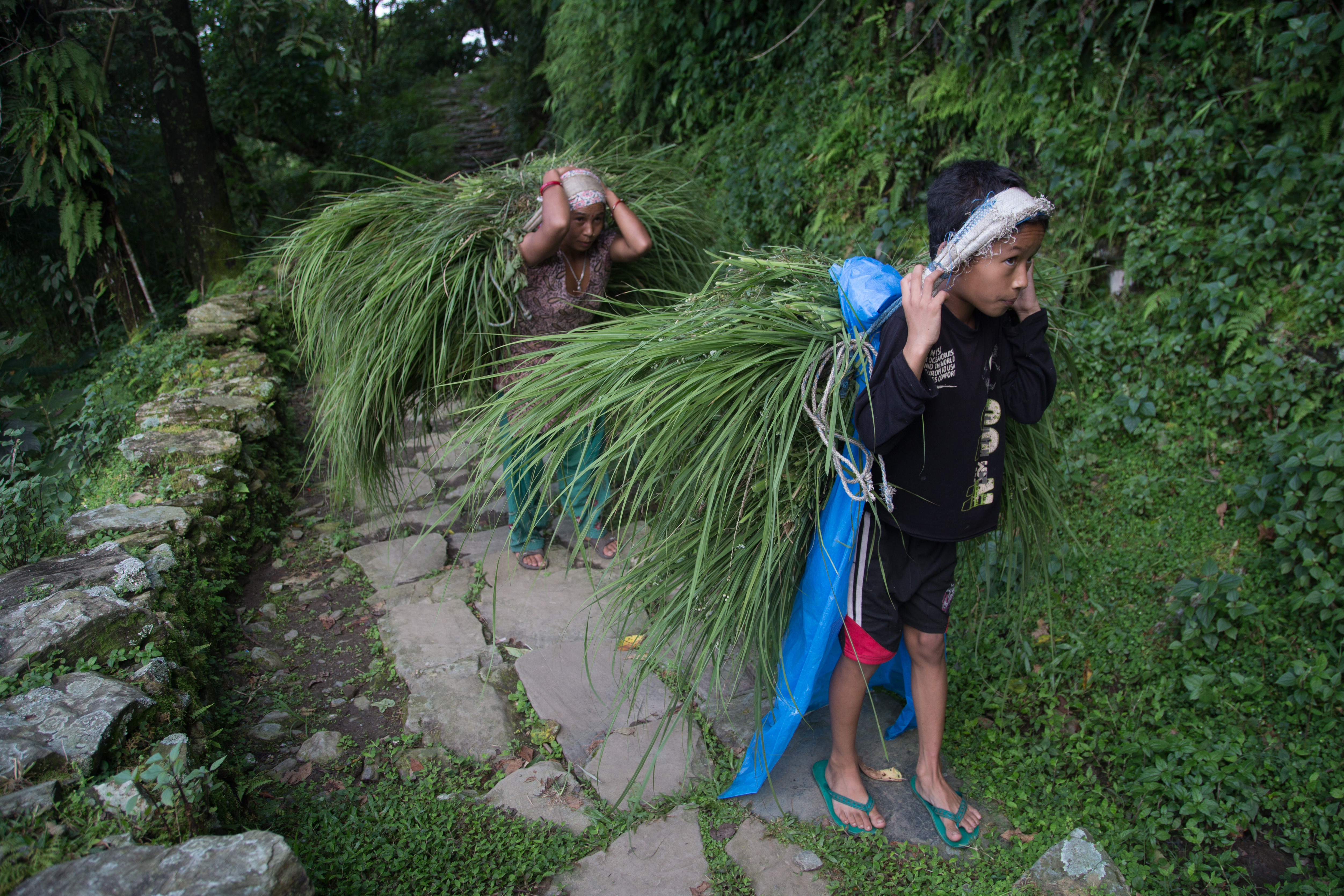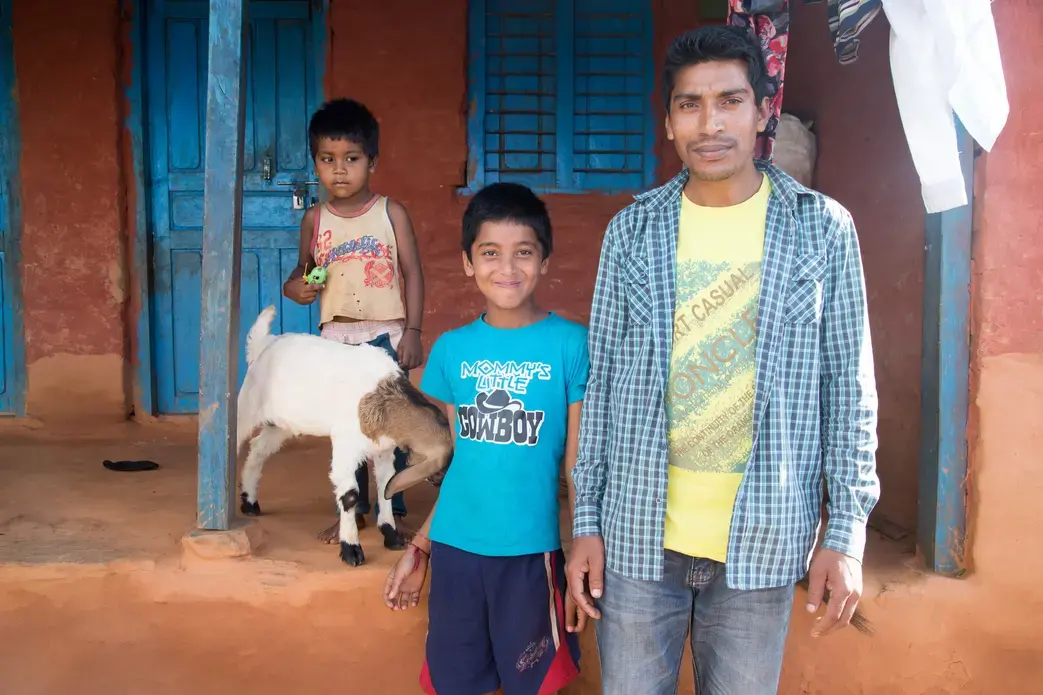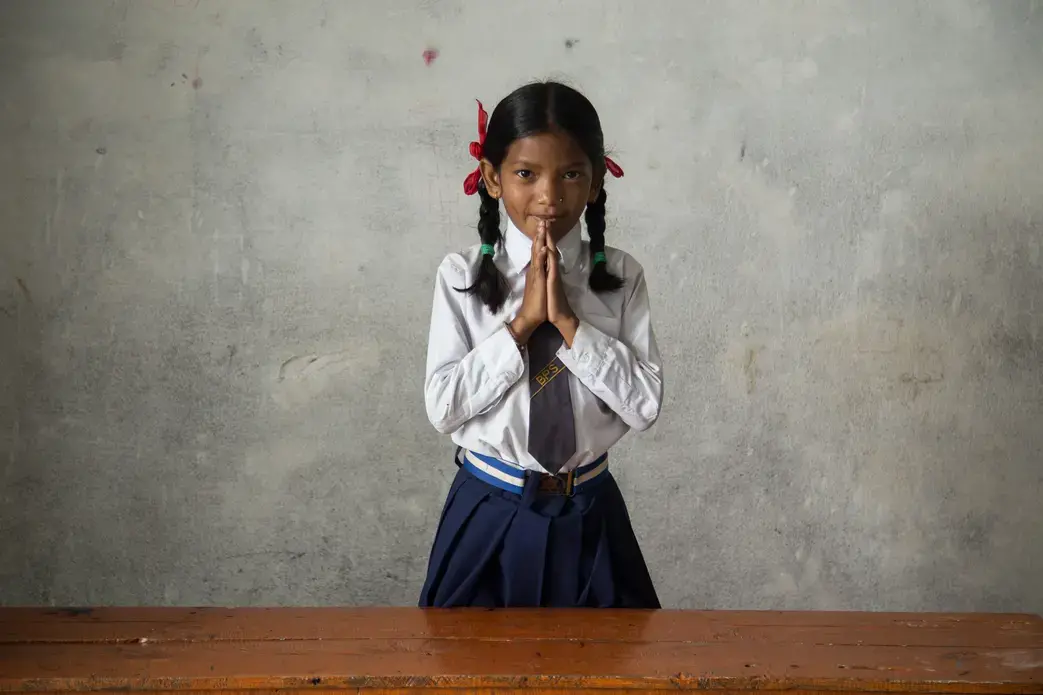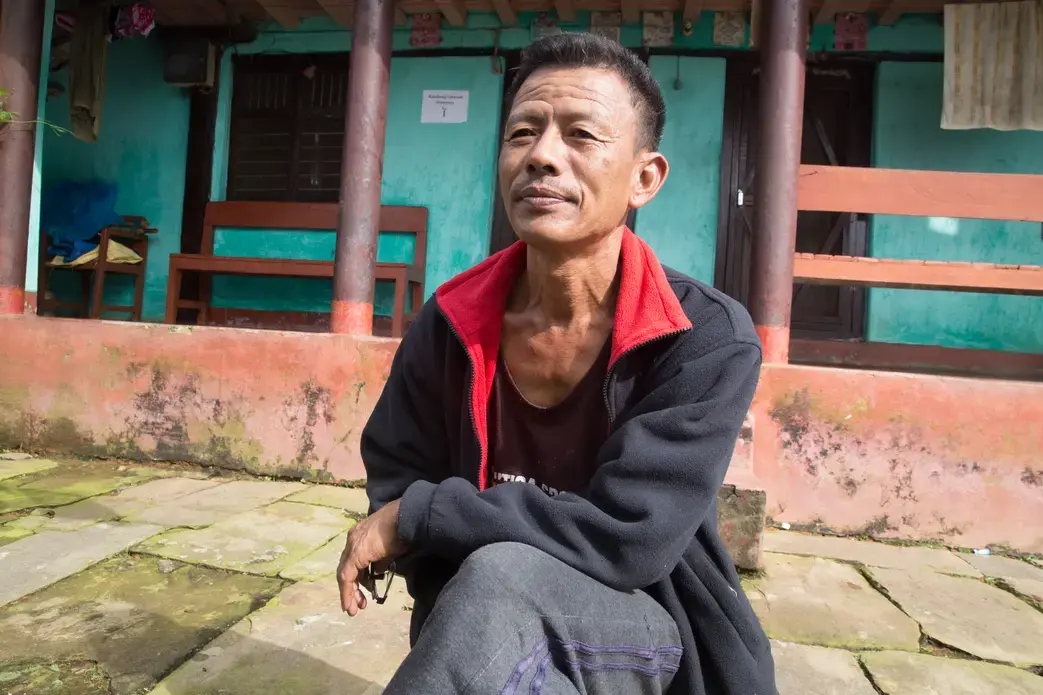During the 2008 general election for the Constituent Assembly of Nepal, Prakash Gurung noticed an alarming reality in his ancestral hometown of Kala Bang, a village that has existed on the western slopes of Nepal for more than 250 years.
At a polling center in Kala Bang, located roughly six kilometers outside Nepal's second largest city, Pokhara, the men, who gather in one line, had finished voting by 10:30 a.m., much to Gurung's surprise—in the past, he recalled, the men waited in line until late in the afternoon. The women didn't finish voting until 2:30 p.m.
"What that showed is that most of the men of this village are no longer around—that's concrete evidence," said Gurung.
Over the six decades of his lifespan, Gurung has seen a thriving community of farmers and animal herders slowly transform into a village of only women, children, and the elderly, a phenomenon which accurately portrays today's reality of many villages across Nepal.
According to Gurung, more than 80 percent of Kala Bang's young men have left in search of employment, the majority of whom have ended their pursuit in Gulf countries like Qatar, Malaysia, and the United Arab Emirates.
Last year's annual report, published by the Foreign Employment Department at the Ministry of Labor and Employment, reports that 482,427 Nepalese left for foreign employment in 2014—this number included 466,439 men and 15,988 women.
Since 2006, when the department started maintaining data, more than 2.5 million Nepalese have traveled overseas for employment, the majority of whom are engaged in low-skilled jobs. The number doesn't include those who left before 2006; neither does it reflect the thousands of others who cross the open borders to India and then travel elsewhere for work or those who leave to work illegally.
Where have the men gone?
Young men leaving to pursue their dreams has almost become a tradition in Kala Bang, where the indigenous Gurung community has always had the majority—their men have proudly served in the British and the Indian military forces and the Nepali army for decades. Forefathers of this ethnicity were feared and praised for their valor, which has paved the path for their descendants to be recruited into the army and allowed them an escape from the slow-paced village life.
Even today, Gurung said, the most preferred job for young men here is to join the British Army. However, with limited slots vied for by thousands across the country, the lack of employment opportunities has forced many to settle for the less-preferred choice—to find labor jobs in the Gulf.
For the past 35 years, young men here have been leaving to try their fortune in the Gulf nations. Now, they're departing at an alarming rate, so that the "youths who are strong are no longer here," said Gurung.
"Here, the main source of income—traditionally, it was agriculture. Then came the enrollment into the British-India army and the pensioners," said Gurung. "Now, the majority of people from here are engaged in foreign employment—skilled labor go to (South) Korea or Hong Kong; unskilled labor go to Malaysia and the Gulf. And the remittance they send is the base of life here."
While there is no official record available, Gurung firmly asserts that more than 80 percent of men have left; other residents claim the figure is closer to 90 percent.
In the past, Gurung recalled, more than 200 men would take part in a funeral procession when a death occurred in the village. According to Gurung tradition, a dead body is carried by men on their shoulders and taken to the cremation site, often located on the top of hills.
"Now there are hardly 10 men who can carry the body to the top and perform the ceremonies. Otherwise, it's only old men," he said.
The numbers back Gurung's assertions. Of the 230 houses that are scattered on the hill slope where Kala Bang is situated, about 31 percent of the homes are vacant, empty. Where once resided more than 250 families, only 156 families now live.
No men in villages, no families either
Gurung currently serves as the chairman of the school board at Bhagwati Primary School, where 106 children from Kala Bang and neighboring villages are enrolled between classes one and five. "When I was a student at [Bhagwati Primary], there were about 250 students from classes one to five. In [2008], when I got on the school board, the number was reduced to 42," he said.
Gurung had understood why the young men were leaving—their families depended on them for survival. But the steep decline in student enrollment, which meant the families were moving away, worried Gurung. Once he got on the school board, Gurung took it upon himself to investigate the reasons for the decline.
Gurung explained that the families were migrating to the bazaar (or marketplace) and to Pokhara, for better schools and for "English medium" education, referring to the trend among Nepali parents to send their kids to schools where classes are taught in English contrary to being taught in Nepali, as is the case in the government schools.
"Sending kids to [English medium] schools became a matter of pride for folks and because, historically, private schools have always provided higher quality education compared to government schools. "So, as soon as they could afford to send their kids to such schools, they started migrating to Pokhara. What allowed these families such luxury was the income generated from foreign employment by their spouses," said Gurung.
Dr. Ganesh Gurung (no relation to Prakash Gurung), the founding chairperson of the Nepal Institute of Development Studies (NIDS), an NGO which focuses on the migration issues in Nepal, claims that mass migration of Nepalese youths has directly affected Nepal's internal migration.
"International migration has accelerated internal migration, that's the biggest impact," said Dr. Gurung during an interview in his office in Kathmandu. "When a husband goes to Saudi Arabia, he sends money, and the wife, under the pretense of educating their children, moves from villages to bazaar. So villages are empty now due to an increase in internal migration."
The prevailing scenario of Kala Bang supports Dr. Gurung's claims.
Working abroad: pipe dream vs. reality
Kala Bang, which is a part of Pumdi Bhumdi VDC (Village Development Committee) has a mesmerizing view of the Annapurna Mountain Range and was traditionally an agro-based community. The families here now rely primarily on remittance for survival. Aside from odd jobs at construction sites and part-time work during farming season, there are no employment opportunities here, leaving natives like Shanta Bahadur B.K. with no option besides foreign employment. B.K., who returned to Nepal earlier this year after working for 10 years in Saudi Arabia, was 22 when he decided to leave, especially since he had been married for two years and the family was struggling economically.
"What could I do?" questioned B.K. "I stayed there due to necessity—one has to eat and live. I had to separate from my parents, be deprived of family love. [The employers in the Gulf] would verbally abuse us in the worst manner," he said. "But I had to stay there. I had to earn [to] support my family."
B.K. belongs to the Dalit community—a group that falls in the lower tier of the hierarchical caste system that still prevails in the once-Hindu Kingdom of Nepal. Currently, there are 68 Dalit families in Kala Bang.
The Dalits, who were considered "untouchable" in the past, have been oppressed for generations, be it religiously, socially or economically, and were primarily responsible for lowly jobs. Families in these communities struggled to make ends meet, and the situation for their descendants—though much better than it historically was—still isn't satisfactory.
B.K.'s case is no different. A lack of formal education and a lack of professional skills meant B.K. had only one option—to toil in someone else's land whenever opportunity came along or to work as a laborer at construction sites in the village.
"The conditions here weren't favorable to earn as the income wasn't even enough to eat. After working all day, all I could earn was Rs. 150 (equivalent to $1.50)," stressed B.K. "I worked at house constructions, broke stones, and it wasn't enough, despite working all day. Hoping that there would be more opportunities to better our lives abroad, I left."
B.K. shared that the 10 to 12 friends he grew up with in the village have all left and are currently working in the Gulf.
A decade later, much hasn't changed in the village setting, said B.K., disappointment audible in his voice. He has been home for about five months now and has yet to find a decent job, so he is on course to try his luck somewhere in the Gulf yet again. "I can't afford to go more expensive places," he lamented.
B.K., who worked as a carpenter for 10 years in Saudi, has had colleagues die in his own work quarters, has witnessed people "do anything and everything" to earn money, and is well aware of all the harsh realities of migrant workers in the Gulf; still, he wants to go.
"Every week, there was someone who came to the quarters after working all day, went to bed after dinner, and didn't wake up in the morning," said B.K. "When I see that, I get scared thinking whether I will ever return home. When that happens, I feel like returning. But due to necessity and compulsion, I have to stay," confessed the father of two boys, Dipesh, 10, and 4-year-old Bibash. "I can't just think about now. I have to plan for the future as well."
B.K., in his own words, hasn't achieved much despite spending a decade of his youth working in a foreign country. With his earnings, he paid off the loan he had acquired to go abroad and has been able to provide for his family and send his kids to school. The family has a place to call home, but that's all there is, he said.
"I am the same as I was before. I'm at the same level as I always was. I haven't climbed up… I don't have any land here to farm nor other source of income, so going abroad is the only option I have," said B.K., managing to keep a smile on his face. "I don't have too many high hopes since I'm not educated. Despite all hardships I have to face and no matter what happens to me, I want to give my two sons the best life I can provide for them and pay for their education," he added, noting that if everything goes well, he will leave in three months.
Talking about his future plans, B.K. said he would love to come back to Kala Bang and invest in a sector if possible because he doesn't want to leave. "But I have nothing, so I have to leave," he said.
Leading with experience: Changing the face of the village
Except for the time period between his higher education and career, Prakash Gurung has lived in Kala Bang all his life; his family has farmed on the hill-slope for more than 200 years. The "folk tale" of how the village was named, which was passed on to Gurung from his ancestors, is this: Before anyone lived here, when travelers and villagers from the surrounding hills looked at the slope that is now Kala Bang, it appeared to be a dense, black forest, so they referred to it as "Kalo Ban," which translates into English as "black forest." Over the years, it changed into Kala Bang.
After voluntarily retiring as a section officer from the Nepal Industrial Development Corporation where he worked for 27 years, Gurung returned home in 2002. He was elected to the school board of the Bhagwati Primary School, the local government school he had attended as a child. Once elected, Gurung became aware of a horrifying trend: the enrollment at the school, which was as high as 250 students during its peak, had been reduced to 42.
After becoming privy to the reasons of the decline, primarily due to families moving to cities for better education for their children, Gurung decided to tackle the problem head-on. Because there are many, and better, opportunities outside Kala Bang for one to earn and prosper, especially when one is young, strong and determined, the men were leaving—this Gurung accepted. But if the men's families could be convinced to stay, then the men would surely return with money and skills, which could be applied to better the living standard in the village, realized Gurung. So he took it as a challenge to ensure that no family in the village would leave again for education purposes.
"We started the movement of providing quality education, equivalent to that at a boarding school, and adopted a syllabus similar to theirs. And now, we have 106 students here," he said, adding that their eventual goal is to expand up to the eighth grade, which as per the Nepal Government, is considered basic education.
Gurung claimed that not a single family has migrated in recent years due to lack of quality education, an encouraging sign for him and the residents of the village to continue persevering to bring back the heyday of the time when their ancestors lived and thrived in Kala Bang.
For the past year, Gurung and a few other men in the village have also adopted the trend of providing Homestay to international and local tourists as an alternative source of income, hoping to encourage the village youths to stay and invest in their own community.
Homestay is a form of tourism which allows locals to provide food and lodging facilities to visitors and is being practiced by many communities and villages across Nepal.
"We started with 9 and now there are 18 homes. There are improvements needed to be made, and we are engaged in the process," said Gurung. "At first, a lot of people were complaining about Homestay. Now, everyone wants to learn how they can get into it," said Gurung. "By showing people how to earn money here and make a decent living and self-sustain, we are trying to combat the foreign employment endemic."
In recent years, the farmers in the village have also collaborated their efforts and registered "Kala Bang Ghaderi Krishak Samuha," a local farmer's association from where 700-800 kgs of vegetable produce, especially cucumbers, pumpkins, bottle gourds, luffa and other seasonal produce, are collected daily and sent to the market during season, according to Dhurba Raj Poudel, one of the founders of the association.
There are also a few individual success stories of individuals who have started animal rearing, poultry farming in the village, which Gurung hopes, can encourage the next generation to stay put in Kala Bang.
Social changes and steps ahead
Gurung has never migrated to foreign lands for employment opportunities and isn't a proponent of young men leaving; but he doesn't oppose it either, especially because he has seen positives as well, one of which is the social change seen in the Dalit community once their men started working abroad.
Gurung has heard this story from many migrant workers: In the Gulf, there were many instances when better paying jobs were available—jobs they had previously done—but they ended up working in the labor force simply due to the language barrier—the communicative language was English and they couldn't explain themselves to their employers as they were uneducated. "Then they realized the importance of education and English, so they called their wives and told them to enroll their kids in English medium schools," said Gurung.
"[The Dalits] couldn't talk straight to us in the past. Now, after every examination, we have feedback programs and the parents look straight into our eyes and show a clear interest in their kids' education. They clearly speak their mind to us—that mentality has grown. That's something I am personally happy about," he continued.
For someone who has seen his village almost emptied of young men, Gurung is surprisingly, or rather unsurprisingly, optimistic. If civilized and educated elders of the community are able to lead by example, then positives are bound to come by, even if it takes time for those to come into fruition, believes Gurung.
"Youths are learning about the different ways of earning—poultry farming, cattle farming, growing vegetables," said Gurung. "This will definitely take time to expand because we need to convince people and make them aware of the logistics—we have to show them how much time it takes to invest; how much you can earn; what your cost of production is minus the expenses; how much your monthly income will be and how much you will save because people will only believe what they see.
"Change won't come in a day, because it takes time. But I foresee a bright future ahead. This is our land, our country, our culture. We can do something by living here. If we invest here, sweat here, there will certainly be dividends. I'm proud of my land, and even at this age of 60, I have the courage to say that we can definitely do something here," said Gurung.











